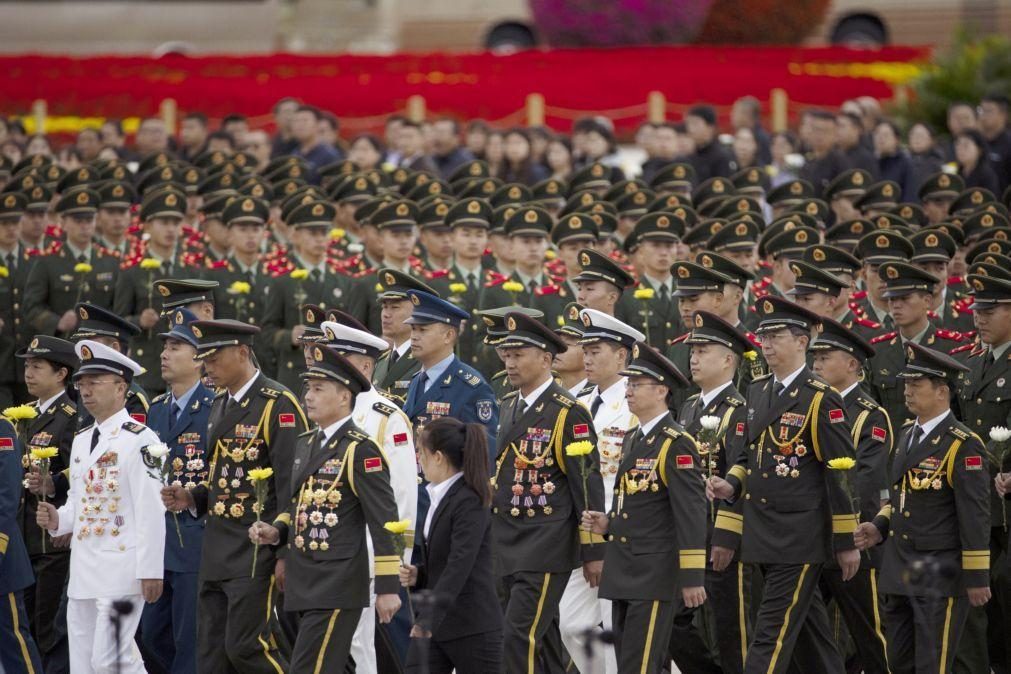China has announced a new set of comprehensive regulations to severely restrict the dissemination of military information on the internet, a move aimed at bolstering national security and protecting state secrets. The rules, which will take effect on March 1, establish strict guidelines regarding what content related to the People’s Liberation Army (PLA) can be disclosed, explicitly banning the “production, copying, publication, and dissemination” of military secrets, national defense technology, confidential industrial details, and other information not officially released.
The initiative comes at a strategic moment for China, which has been investing heavily in the modernization and expansion of its military forces, aiming to rival the military power of the United States. This decision also reflects President Xi Jinping’s ongoing campaign to strengthen national security and control the flow of sensitive information amid rising geopolitical tensions, particularly in the Indo-Pacific region and regarding Taiwan.

The new regulations signal a significant shift in how China handles the disclosure of information about the PLA. Until now, bloggers, military enthusiasts, and independent analysts within China often shared images, data, and analyses on strategic developments, tests of new equipment, troop movements, and changes in military leadership.
These posts on social media, specialized forums, and video-sharing platforms not only fueled the interest of the Chinese public but were also a valuable source for international observers studying China’s military advancements. Much of this information allowed foreign analysts to closely track the PLA’s evolution, monitoring new missile launches, joint exercises, restructuring of command structures, and strategic movements of ships and aircraft.
However, under the new rules, any unauthorized mention of the development of weapon systems, military tests, troop positioning, organizational structures, combat capabilities, and strategic missions will be prohibited. The government justifies the decision as an effort to combat the spread of “false military information” and prevent the leaking of Army secrets on the internet.
Joseph Wen, an independent analyst based in Taipei and an expert in collecting publicly available PLA information, points out that China has historically maintained an ambiguous relationship with the disclosure of military information. “The Chinese Communist Party has always treated its military affairs with a high degree of secrecy, but at the same time, it allowed a certain level of speculation and leaks within national online communities,” explains Wen.
This strategy, known as the “wink and nod,” was part of a carefully calculated game between secrecy and propaganda. The government allowed information about new equipment or military advancements to circulate in forums, helping to fuel the perception that China was becoming stronger, without the authorities needing to release official data.
However, the new rules indicate that Beijing is starting to abandon this more flexible approach, setting clear limits on military information sharing. This could have profound impacts on how China projects its power and how the world perceives its military growth.
The regulations target not only individuals but also “online military information service providers,” including defense-specific websites, journalistic columns dedicated to the topic, and social media accounts focused on military affairs. Popular Chinese platforms such as Weibo and WeChat already censor discussions considered sensitive, and the new legislation is expected to further intensify this practice.
The measure could also deeply impact the community of military enthusiasts in China, which plays a significant role in disseminating information about the country’s armed forces. Many of these bloggers and independent analysts have thousands of followers and are known for providing detailed updates on the PLA even before any official announcement.
The imposition of stricter new rules could drastically reduce the amount of unofficial information available and complicate the work of journalists, analysts, and foreign governments trying to monitor the PLA’s evolution.
It is still unclear how the new restrictions will affect foreign media coverage of the Chinese Army. While these rules are aimed at domestic platforms and users, they may signal a broader trend towards greater secrecy and opacity in China’s military sector.
Experts suggest that the new legislation may indicate a hardening of Beijing’s stance on the transparency of its military advancements. This could lead to a scenario where foreign governments and intelligence agencies have greater difficulty obtaining information about PLA movements, increasing the risk of misinterpretations and unwanted escalations in regional conflicts.
Furthermore, the decision comes at a time of growing geopolitical tensions between China and the United States, particularly regarding Taiwan, the South China Sea, and the contest for global influence. With less publicly available information about the PLA’s intentions and capabilities, Western powers may face greater challenges in assessing the real threat posed by China’s military growth.
By implementing these new regulations, China reinforces its position of absolute secrecy over its military affairs, making it even more difficult for analysts and foreign observers to understand the extent of its military forces’ growth and modernization.
On the one hand, this initiative strengthens China’s national security and protects strategic secrets; on the other, it raises concerns about the impact this lack of transparency could have on global stability. Without clear information about the PLA’s advancements and intentions, neighboring countries and global military powers may feel compelled to adopt a more cautious and defensive stance, potentially increasing tensions and reducing opportunities for dialogue and cooperation.
The Chinese government’s decision to further restrict the flow of military information on the internet is another step in its strategy to consolidate control over the defense sector and reinforce its position as a global military power. The full impact of these changes will still be seen, but it is certain that they will transform how the world monitors and understands the evolution of China’s armed forces.

